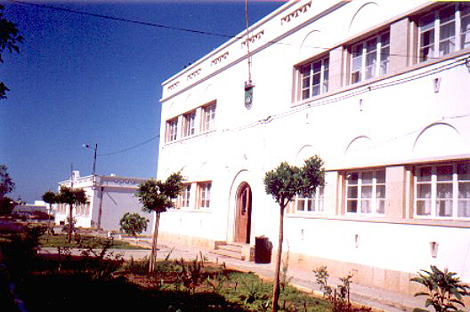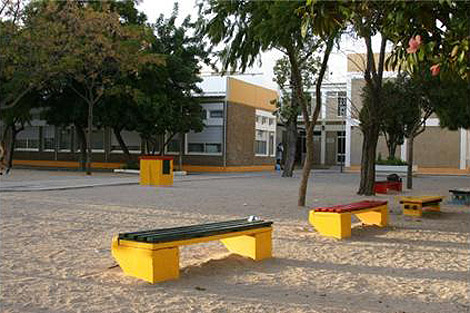 The PCP brought the controversy surrounding the changes in the schedule of students at Basic School No. 5 of the Professor Paula Nogueira Schools Group, from Olhão and questioned the Government, through its deputies to the Assembly of the Republic, what it intends to do in the face of this situation.
The PCP brought the controversy surrounding the changes in the schedule of students at Basic School No. 5 of the Professor Paula Nogueira Schools Group, from Olhão and questioned the Government, through its deputies to the Assembly of the Republic, what it intends to do in the face of this situation.
The case of the elementary school in Olhana is not unique in the region, but it is one in which the schedules have been in effect for a few weeks. Also the 1st cycle schools of Alto Rhodes and Carmo, in Faro, are in a similar situation, but the time change was only supposed to take effect this Monday.
The parents of the schools of Faro, who have already tried by various means to stop the change in timetables, say they have not received any response to the presentations they have made to various entities, including the Secretary of State for Education. Therefore, they scheduled a protest for today and should move towards other forms of struggle.
 The three schools have in common the fact that they operate on a double schedule, in which the school has two shifts of students, one in the morning and the other in the afternoon, and that they were visited by the General Inspectorate of Education and Science, which considered that they would not be complying with the schedule stipulated by law of 25 hours of classes per week.
The three schools have in common the fact that they operate on a double schedule, in which the school has two shifts of students, one in the morning and the other in the afternoon, and that they were visited by the General Inspectorate of Education and Science, which considered that they would not be complying with the schedule stipulated by law of 25 hours of classes per week.
“School No. 5 of the 1st cycle of basic education, belonging to the Professor Paula Nogueira Group of Schools, operates under a dual regime. The morning shift was open from 8:10 am to 13.00:13 pm, while the afternoon shift was open from 10:18 pm to 00:20 pm. In both shifts the break was 22,5 minutes. In this way, the students completed XNUMX hours per week of the teaching component (including the break)», recalled the PCP.
«Recently, as the school year is already underway, the General Inspectorate of Education and Science imposed on the Group's Direction, with effect from October 9th, a change in the opening hours, starting the morning shift from 7am :50 to 13:10 and the afternoon shift from 13:15 to 18:35. Such imposition resulted from the need for students to fulfill 25 hours per week of teaching component”, added the parliamentary group of the PCP in the question that it posed to the Government.
 Schedules that the PCP considers "unacceptable" and that "demonstrate a profound disrespect for the rights of children and for the conditions in which learning takes place".
Schedules that the PCP considers "unacceptable" and that "demonstrate a profound disrespect for the rights of children and for the conditions in which learning takes place".
"This and other examples are very revealing of the divestment policy followed by the Ministry of Education and Science, resulting in an insufficiency of classrooms and the consequent need to operate in a double regime (occupation of the same room by two classes, one in the morning, the other of evening). Such policy represents the denial of objective conditions for access and attendance under conditions of equality as enshrined in the Basic Law of the Educational System and in the Constitution of the Portuguese Republic», accused the communists.
The PCP's Parliamentary Group asked the Ministry of Education and Science “whether it will allow the timetables of EB No. 5 in Olhão to be changed, replacing the existing situation from the beginning of the school year until October 9, and even if measures will be adopted in order to solve the problem of lack of classrooms in these educational establishments in order to allow them to function under normal conditions».
The parents of the three schools affected by the imposition of the Inspection invoke the law and defend that the schedules cannot be changed after the beginning of the school year, due to the serious inconveniences they cause to children and families, who organized the entire year according to the times which were communicated to them at the time of registration.
The Upper Rhodes School Parents Association He also recalled that the law stipulates 22,5 hours as the minimum time allowed, arguing that this regime was designed precisely for “exceptional” situations such as those in schools that operate on a double schedule.


















Comments